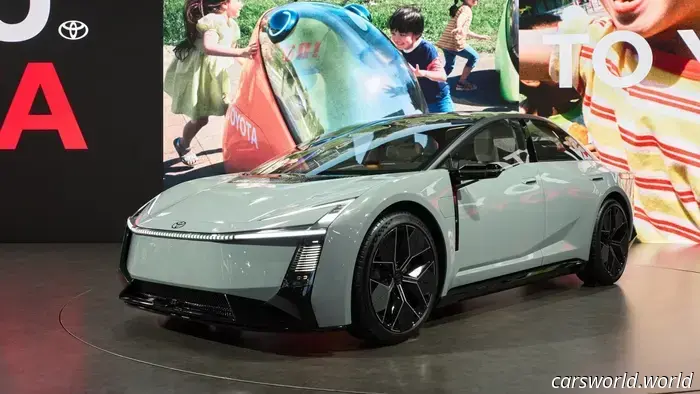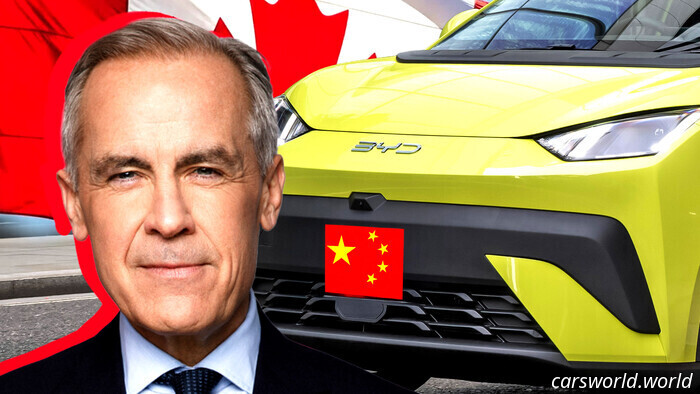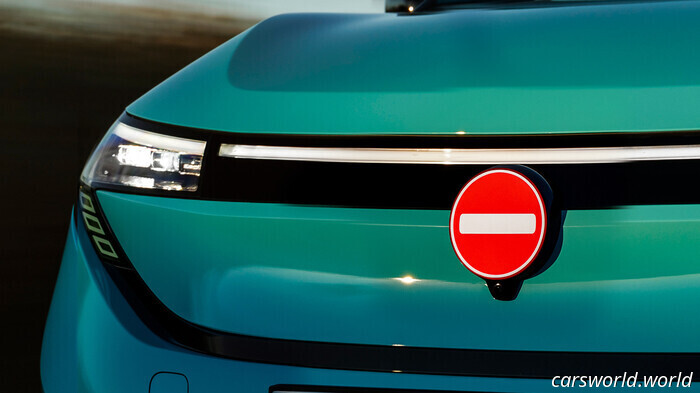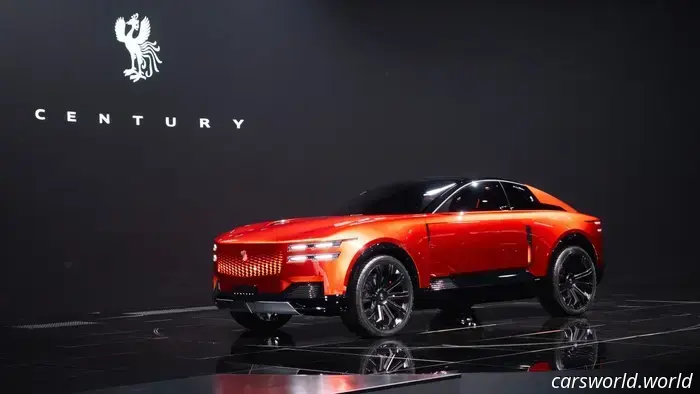
Toyota Aims to Be the ‘Final Company’ Producing Engines, and It’s Open About Its Ambition
The Toyota Corolla Concept showcased at the Japan Mobility Show 2025 illustrates the company's intention to connect with potential customers. This innovative Corolla may resemble an electric vehicle, but Toyota believes it can sustain its sleek shape and spacious interior by fitting a small gasoline engine in its compact front end. This approach is crucial for Toyota as the company aims to remain in the engine production business long-term, with aspirations to be the last manufacturer standing.
Hiroki Nakajima, Toyota’s chief technology officer, expressed during a media Q&A in Tokyo that he envisions Toyota as a company that will continue to produce engines indefinitely, emphasizing his desire for Toyota to be the final entity involved in this endeavor.
Toyota has maintained a clear position on this topic for quite some time. Former CEO and current chairman Akio Toyoda controversially stated years ago that while reducing carbon emissions is Toyota's primary goal, it does not see battery electric vehicles as the sole solution. As we reach the midpoint of this decade, it appears that other automakers are beginning to acknowledge the lasting importance of internal combustion engines.
The Corolla Concept features a notably short hood and deep footwells. Although it is ultimately a show car, Toyota maintains that such design can be achieved without restricting it to electric vehicles.
However, while the need for gasoline engines is emphasized, the goal of sustaining them for the long haul is another matter. During the panel discussion, Nakajima addressed the challenge of lowering CO2 emissions while also catering to consumer preferences. He shared his personal enthusiasm for motorsports and his belief that synthetic carbon-neutral fuels could allow gasoline engines to persist for performance-focused applications.
Takashi Uehara, who leads Toyota's powertrains division, compared high-performance electric vehicles to enjoying fireworks in silence—visually appealing but lacking in auditory and tactile excitement. It's clear that the chairman's enthusiasm for internal combustion reflects a broader sentiment within the company.
Uehara also highlighted the practical advantages of gasoline engines, such as the recyclability of their aluminum components and the energy-dense fuels they utilize. He provided insight into Toyota's forthcoming 1.5-liter, four-cylinder hybrid powertrain, which is impressively compact and aims for 134 total horsepower with a 10-20% improvement in fuel efficiency compared to the company's existing inline-four engine of the same size.
A photo from May 2024 shows the development of Toyota's 1.5-liter, four-cylinder hybrid powertrain, which is 10% smaller in volume and 10% lower in height than the company's current engine of the same size.
This is the technology Toyota envisions for the Corolla displayed at the event, appealing to customers who currently do not see electric vehicles as a fitting option. Nakajima's comments suggest that there may still be significant potential for gasoline engines in the future. Whether Toyota will indeed be the last manufacturer producing them remains to be seen.
If you have any tips, feel free to reach out to [email protected].





Other articles
 Canada May Determine the Outcome of Chinese EV Tariffs as Carney Engages with Xi | Carscoops
Mark Carney is meeting with China's president today, but he states that he does not come with a predetermined proposal.
Canada May Determine the Outcome of Chinese EV Tariffs as Carney Engages with Xi | Carscoops
Mark Carney is meeting with China's president today, but he states that he does not come with a predetermined proposal.
 The Car of the Year shortlist has been announced, and there are several contentious exclusions. | Carscoops
The Nissan Leaf and the Hyundai Ioniq 9 are merely two instances of significant new models that were excluded.
The Car of the Year shortlist has been announced, and there are several contentious exclusions. | Carscoops
The Nissan Leaf and the Hyundai Ioniq 9 are merely two instances of significant new models that were excluded.
 The new Dodge Charger Drag Pak is equipped with a V8. So, where is the Hemi road car?
Dodge had the option to fit this Charger with a powerful Hurricane I6 engine, but they chose not to. Perhaps that indicates something.
The new Dodge Charger Drag Pak is equipped with a V8. So, where is the Hemi road car?
Dodge had the option to fit this Charger with a powerful Hurricane I6 engine, but they chose not to. Perhaps that indicates something.
 Toyota's flagship Century aims to compete with Bentley and Rolls-Royce in the American market.
The Century brand will be available at select Lexus dealerships.
Toyota's flagship Century aims to compete with Bentley and Rolls-Royce in the American market.
The Century brand will be available at select Lexus dealerships.
 Two Die Following Collision with Cybertruck Caused by Wrong-Way BMW Driver | Carscoops
A head-on collision on Houston's I-10 Freeway resulted in tragedy, with two drivers losing their lives in a blaze that is currently being investigated by the police.
Two Die Following Collision with Cybertruck Caused by Wrong-Way BMW Driver | Carscoops
A head-on collision on Houston's I-10 Freeway resulted in tragedy, with two drivers losing their lives in a blaze that is currently being investigated by the police.
 Canada's Anger Grows as Stellantis CEO Faces Tough Questions Regarding Jeep Relocation | Carscoops
Stellantis is facing criticism in Canada after halting Jeep Compass production and providing justifications that lawmakers find unconvincing.
Canada's Anger Grows as Stellantis CEO Faces Tough Questions Regarding Jeep Relocation | Carscoops
Stellantis is facing criticism in Canada after halting Jeep Compass production and providing justifications that lawmakers find unconvincing.
Toyota Aims to Be the ‘Final Company’ Producing Engines, and It’s Open About Its Ambition
For both performance and practicality reasons, Toyota places great importance on gas engines and has no intention of abandoning them.
